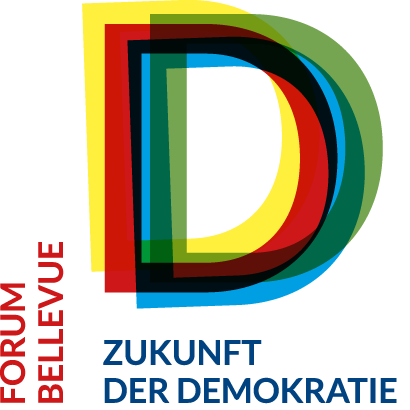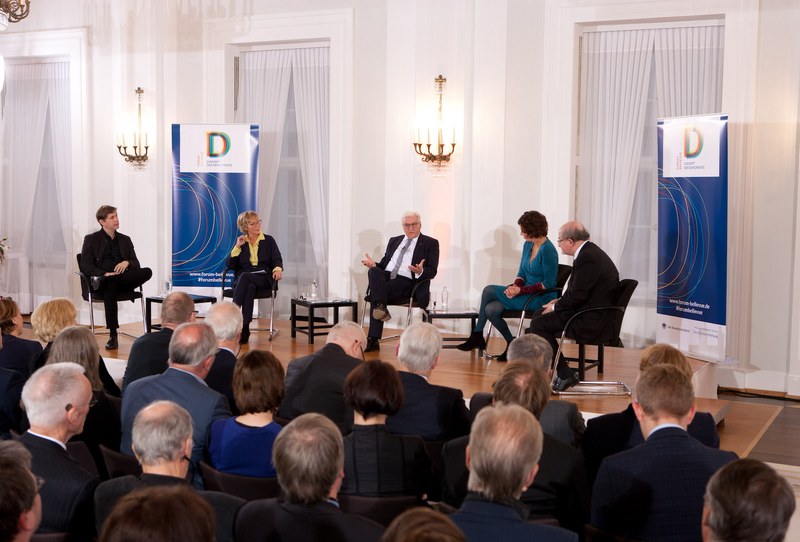In his opening remarks, Federal President Steinmeier emphasized the outstanding contribution of writers and intellectuals to a critical and open social discourse. He quoted Ralf Dahrendorf, who once called intellectuals the "court jesters of modern society." "Good jesters," Steinmeier noted, would never allow themselves to be co-opted by their "lords"; on the contrary, they have an obligation to ask the difficult questions no one else dares to. However, Federal President Steinmeier made it very clear that as head of state, he would be very careful not to influence the role of intellectuals from a position "gazing down from high upon the lectern." Indeed, he argued, "the very thing that distinguishes our open society is that it does not oblige or compel literature or art in any way." He noted further that although literature and art are not required to perform any function, they are nevertheless capable of having a political impact. Especially narrative art, he argued, contributes to the self-knowledge of every society.
What exactly is the role of writers and authors and what kind of influence do they have on the public debate? Salman Rushdie noted that it was important to have such a discourse in the first place, and added – with regard to the situation in the United States – that "a debate like the one we are having now would not be possible in the White House today." Eva Menasse argued that it is also crucial that policymakers and citizens are able to meet and converse in a public place, for example, about literature. In this same context, however, she condemned the negative consequences for our democracy that would arise as the result of a constant level of background noise generated by hyper social media debates and the overstraining of human beings through technological transformation: "At the moment, we are being overtaken by our own inventions," said Menasse. "We need to learn how to deal with the growth in uncertainty and disinformation, both of which are also fueled by new media."
Daniel Kehlmann pointed out that this was nothing new, arguing that the skyrocketing proliferation of printed texts in the 17th century is comparable to the spread of digital media today. "Back then, as today, there was a sudden onslaught of new media." In those days, it was pamphlets and leaflets. Today it's an inestimable number of posts and Tweets, "and people needed to get used to dealing with them first, how to differentiate right from wrong." Kehlmann argued that this behavior was linked to a learning process that we observe once again today.
The final topic of intense discussion was whether authors should even be expected to get involved in politics. Salman Rushdie spoke out against explicitly political novels, and also in opposition to any responsibility being placed on literary figures to deliver commentaries on our times. He pointed to Franz Kafka, who could express everything about the social conditions of his era without referring to anything concrete, for example in The Metamorphosis. Eva Menasse seconded that thought, arguing that "writers are not information offices, they seek their own unique ways of accessing their subjects, and they cannot allow themselves to be placed in the service of any particular idea or bond." Federal President Steinmeier emphasized the extraordinary importance of authors for society and democracy, without them being committed to any particular form or content: "Literature always appears political when it incorporates social analysis, when it draws a portrait of the times or presents a challenge to our familiar view of the world."

